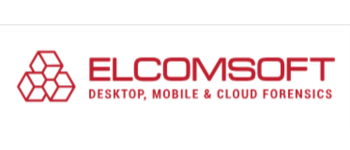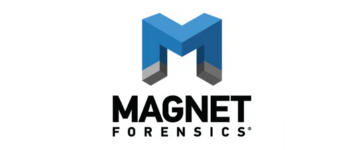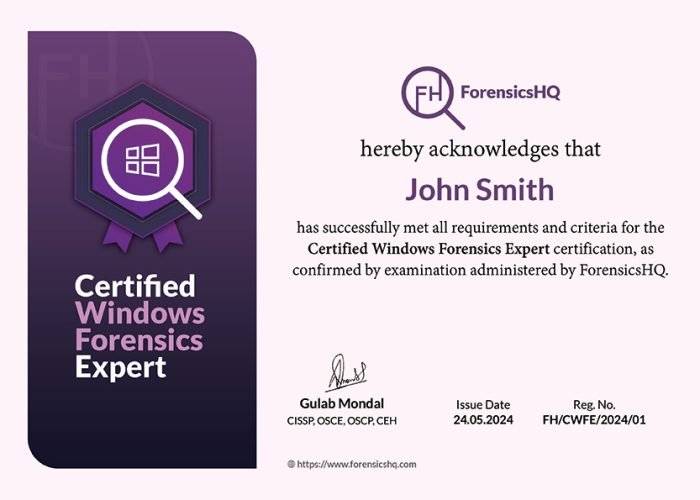Certified Windows Forensics Expert
Take a trip through the complex realm of digital investigation with the Certified Windows Forensics Expert course from ForensicsHQ. This course dives deeply into the complexities of Windows forensics, offering a thorough overview of the tools and techniques crucial for navigating the digital terrain. It is designed for both seasoned investigators and aspiring professionals.
Eligibility
Knowledge on Computer Forensics or CHFI Certified with basic knowledge of Windows Operating System
What Will You Learn
Participants in this course will gain a thorough understanding of Windows forensics, covering everything from sophisticated memory forensics techniques to a deep comprehension of file systems. By the conclusion, you'll be equipped with the knowledge and skills necessary to carry out exhaustive investigations, decipher intricate digital scenarios, and provide strong evidence in court.
Duration
40 hrs
Course Fees
$ 192
Course Objective
- Become knowledgeable about the best forensic tools designed for Windows settings
- Recognise the trends and abnormalities that could point to malicious activity on Windows networks
- Learn the abilities required to dissect and analyse malware specific to Windows
- Give yourself the tools you need to extract digital evidence successfully


Course Benefits
Become proficient in navigating and analysing Windows environments. Prepare for careers in cybersecurity operations centers, ensuring data compliance and recovery, and safeguarding against breaches for robust security solutions.
course syllabus
- Basics of Digital Forensics
- Importance of Forensics in Cybersecurity
- Legal and Ethical Considerations
- Virtualization Software
- Windows Forensic Tools introduction & setup
- Hardware toolkit introduction
- Industrial tools overview
- ForensicsHQ lab Infrastructure
- Hardware toolkit introduction
- Hardware tools basics
- Understanding Windows Architecture
- Versions of Windows and Their File Systems
- NTFS and FAT File Systems
- File Carving Techniques
- File Recovery and Reconstruction
- Structure and Functionality of the Registry
- Analyzing Registry Hives
- Detecting Malicious Registry Changes
- Types of Event Logs in Windows
- Correlating Events for Investigation
- Event Log Anomalies and Patterns
- Examination of Prefetch Files
- Jump Lists and Recent Items Analysis
- UserAssist Registry Key Analysis
- Introduction to Memory Forensics
- Volatility Framework Usage
- Analyzing Memory Dumps
- Capturing and Analyzing Network Traffic
- Investigating Network Artifacts on Windows
- Recognizing Malicious Patterns
- Dynamic and Static Malware Analysis
- Investigating Malware Artifacts on Windows
- Developing an Incident Response Plan
- Live Response on Windows Systems
- Post-Incident Analysis and Reporting
- Disk Imaging Techniques
- Creating Forensic Images of Windows Systems
- Definition and Significance of Browser Forensics
- Legal and Ethical Considerations
- Relevance in Digital Investigations
- Browser Components and Functionality
- Data Storage Mechanisms (Cookies, Cache, History)
- Browser Profiles and User Data
- Examination of Internet Explorer Artifacts
- Firefox Data Storage Locations
- Chrome Data Storage Structures
tools
Practical experience using advanced digital forensic tools.





demo certificate

